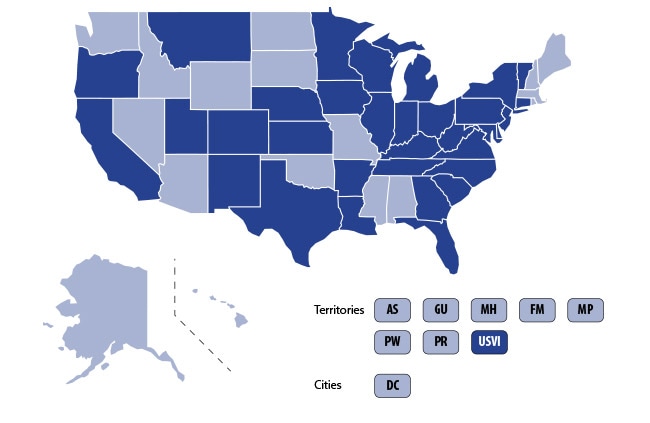
Deerfield-News.com-Deerfield Beach, Fl-With five deaths and over four hundred fifty people now very sick, the CDC has issued a warning about vaping and use of e-cigarettes. They believe there is a connection between vitamin e when heated and vaped and the recent outbreak of lung illnesses although that has not been identified as the sole cause. Meantime Juul is marketing to the public as heavy as ever despite comments about not vaping by their CEO. The incident of illness has been in both tobacco vapes and cannabis vapes. Both of the industries also suffer from a severe counterfeit problem. Just do a simple Google search on fake vape cartridges or counterfeit vape cartridges you will see the thousands of results returned.
-
Outbreak of Lung IllnessAssociated with Using E-cigarette Products
Investigation Notice
CDC, U.S. Food and Drug Administration (FDA), state and local health departments, and other clinical and public health partners are investigating a multistate outbreak of severe pulmonary disease associated with e-cigarette product (devices, liquids, refill pods, and/or cartridges) use. This investigation is ongoing and has not identified a cause, but all reported cases have a history of using e-cigarette products.
E-cigarettes are devices that deliver an aerosol to the user by heating a liquid that usually contains nicotine, flavorings, and other chemicals. E-cigarettes can also be used to deliver marijuana or other substances.
On This Page- As of September 6, 2019, over 450 possible cases of lung illness associated with the use of e-cigarette products have been reported to CDC from the following 33 states and 1 U.S. territory: AR, CA, CO, CT, DE, FL, GA, IA, IL, IN, KS, KY, LA, MD, MI, MN, MT, NC, NE, NJ, NM, NY, OH, OR, PA, SC, TN, TX, UT, VA, VT, WI, WV, and the U.S. Virgin Islands). These numbers may change frequently.
- Five deaths have been confirmed in California, Illinois, Indiana, Minnesota, and Oregon.
- CDC worked with states to create a case definition to classify cases in a consistent way. State investigators determine if cases are confirmed or probable after examining the medical records of suspected cases and consulting with the clinical care team to exclude other possible causes. Unlike nationally reportable conditions, these cases are requiring clinicians and public health to interview patients to determine product use and individual behaviors.
- CDC will report numbers of confirmed and probable cases once states have finalized their classification of cases.
- We expect that states and clinicians may look back for older cases based on CDC’s case definition. States are in the process of classifying current possible cases as well as older cases.
- No evidence of infectious diseases has been identified; therefore lung illnesses are likely associated with a chemical exposure. Initial published reports from the investigation point to clinical similarities among cases. Patients report e-cigarette use and similar symptoms and clinical findings. These align with the CDC health advisory released August 30, 2019.
- The investigation has not identified any specific substance or e-cigarette product that is linked to all cases. Many patients report using e-cigarette products with liquids that contain cannabinoid products, such as tetrahydrocannabinol (THC).
- These investigations are ongoing. CDC will provide updates when more information is available.

While this investigation is ongoing, consider not using e-cigarette products.
If you do use e-cigarette products and you experience symptoms like those reported in this outbreak, seek medical care promptly. CDC and the FDA will continue to alert the public throughout this investigation.
Regardless of the ongoing investigation:
- Youth and young adults should not use e-cigarette products.
- Women who are pregnant should not use e-cigarette products.
- Adults who do not currently use tobacco products should not start using e-cigarette products.
- If you do use e-cigarette products, you should not buy these products off the street (for example, e-cigarette products with THC or other cannabinoids).
- You should not modify e-cigarette products or add any substances to these products that are not intended by the manufacturer.
- Adult smokers who are attempting to quit should use evidence-based treatments, including counseling and FDA-approved medications. If you need help quitting tobacco products, including e-cigarettes, contact your doctor or other medical provider.
If you are concerned about your health after using an e-cigarette product, you can also call your local poison control center at 1-800-222-1222.
CDC and FDA encourage the public to submit detailed reports of any unexpected health or product issues related to tobacco or e-cigarette products to the FDA via the online Safety Reporting Portal.
- Patients in this investigation have reported symptoms such as:
- cough, shortness of breath, or chest pain
- nausea, vomiting, or diarrhea
- fatigue, fever, or weight loss
- Some patients have reported that their symptoms developed over a few days, while others have reported that their symptoms developed over several weeks. A pulmonary infection does not appear to be causing the symptoms, which have generally not improved with antibiotic treatment alone.
As this investigation continues, CDC encourages clinicians to report possible cases of e-cigarette-associated pulmonary disease to their local or state health department for further investigation.
If e-cigarette product use is suspected as a possible cause for a patient’s lung disease, a detailed history of the substances used, the sources, and the devices used should be obtained, as outlined in the HAN, and efforts should be made to determine if any remaining product, devices, and liquids are available for testing.
CDC encourages local and state health departments to notify CDC about possible cases promptly, and contact CDC for the most recent versions of the surveillance case definitions, reporting guidelines, and case investigation forms.
Local and state public health departments that need data collection tools should email CDC at [email protected].
August 30, 2019
CDC, several states, and federal partners are investigating a multistate outbreak of severe pulmonary disease associated with using e-cigarette products. The investigation is ongoing and has not identified a cause, but all reported cases have indicated use of e-cigarette products.
Based on reports from several states, patients have experienced respiratory symptoms (cough, shortness of breath, or chest pain), and some have also experienced gastrointestinal symptoms (nausea, vomiting, or diarrhea) or non-specific symptoms (fatigue, fever, or weight loss). Some patients have reported that their symptoms developed over a few days, while others have reported that their symptoms developed over several weeks. Some patients have reported gastrointestinal symptoms began before respiratory symptoms. Fever, elevated heart rate, and elevated white blood cell count have been reported, even though no infectious disease has been identified. Many patients sought medical care in ambulatory settings, sometimes over several visits, before they were admitted to the hospital.
Many patients have required medical treatment with supplemental oxygen. Some required assisted ventilation. Some patients have been treated with corticosteroids with demonstrated improvement. Evidence does not suggest an infectious disease is the cause of the severe pulmonary disease. Antibiotic therapy alone has not consistently been associated with clinical improvement.
Investigation of the Outbreak
CDC, FDA, state and local health departments, and other clinical and public health partners are investigating a multistate outbreak of pulmonary disease associated with e-cigarette product (devices, liquids, refill pods, and/or cartridges) use. This ongoing investigation seeks to identify the exposures, demographic, clinical, and laboratory features and behaviors of patients. All patients have reported e-cigarette product use. Some patients have reported using e-cigarettes containing cannabinoid products, such as THC. To date, the investigation has not identified any single substance or e-cigarette product that has been consistently associated with illness.
State health departments are working with FDA to enable collection of e-cigarette product specimens for testing at the U.S. FDA Forensic Chemistry Center.
Key Resources- MMWR: Severe Pulmonary Disease Associated with Electronic-Cigarette–Product Use — Interim Guidance
- MMWR: Notes from the Field: Outbreak of Electronic-Cigarette Associated Acute Lipoid Pneumonia—North Carolina, July–August, 2019
- New England Journal of Medicine: Pulmonary Illness Related to E-Cigarette Use in Illinois and Wisconsin — Preliminary Reportexternal icon
- CDC Health Alert Network Advisory: Severe Pulmonary Disease Associated with Using E-Cigarette Products
- Statement from CDC Director Robert R. Redfield, M.D., and Acting FDA Commissioner Ned Sharpless, M.D., on federal and state collaboration to investigate respiratory illnesses reported after use of e-cigarette products
- Get the facts about electronic cigarettes, their health effects and the risks of using e-cigarettes
- What’s the Bottom Line About Electronic Cigarettes?
- What’s the Bottom Line on the Risks of E-cigarettes for Kids, Teens, and Young Adults?
- CDC Media Statement: CDC, FDA, States Continue to Investigate Severe Pulmonary Disease Among People Who Use E-cigarettes
- FDA’s Information on Vaporizers, E-cigarettes, and other Electronic Nicotine Delivery Systemsexternal icon






























